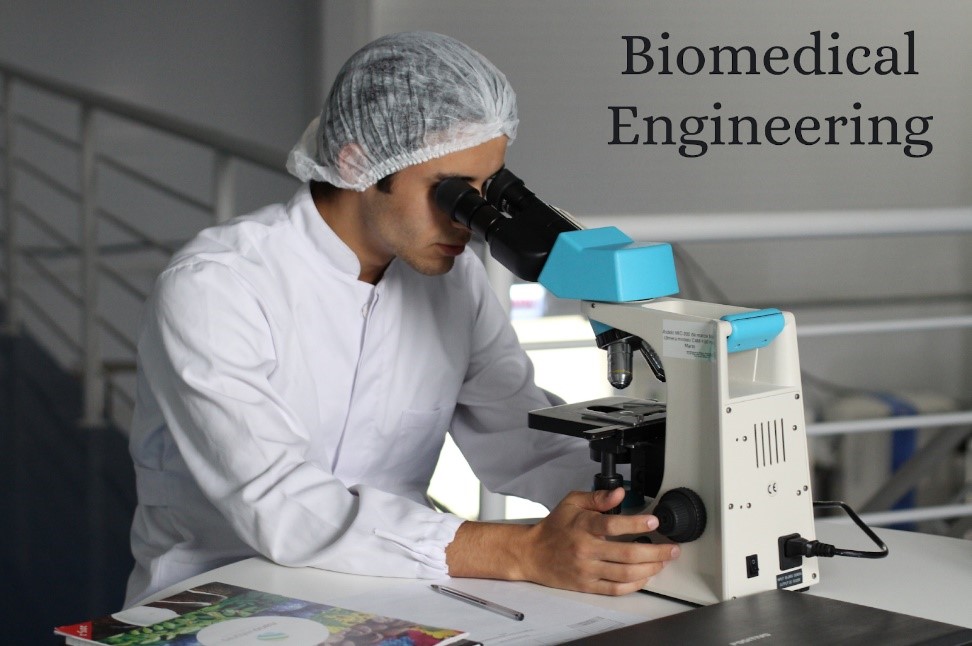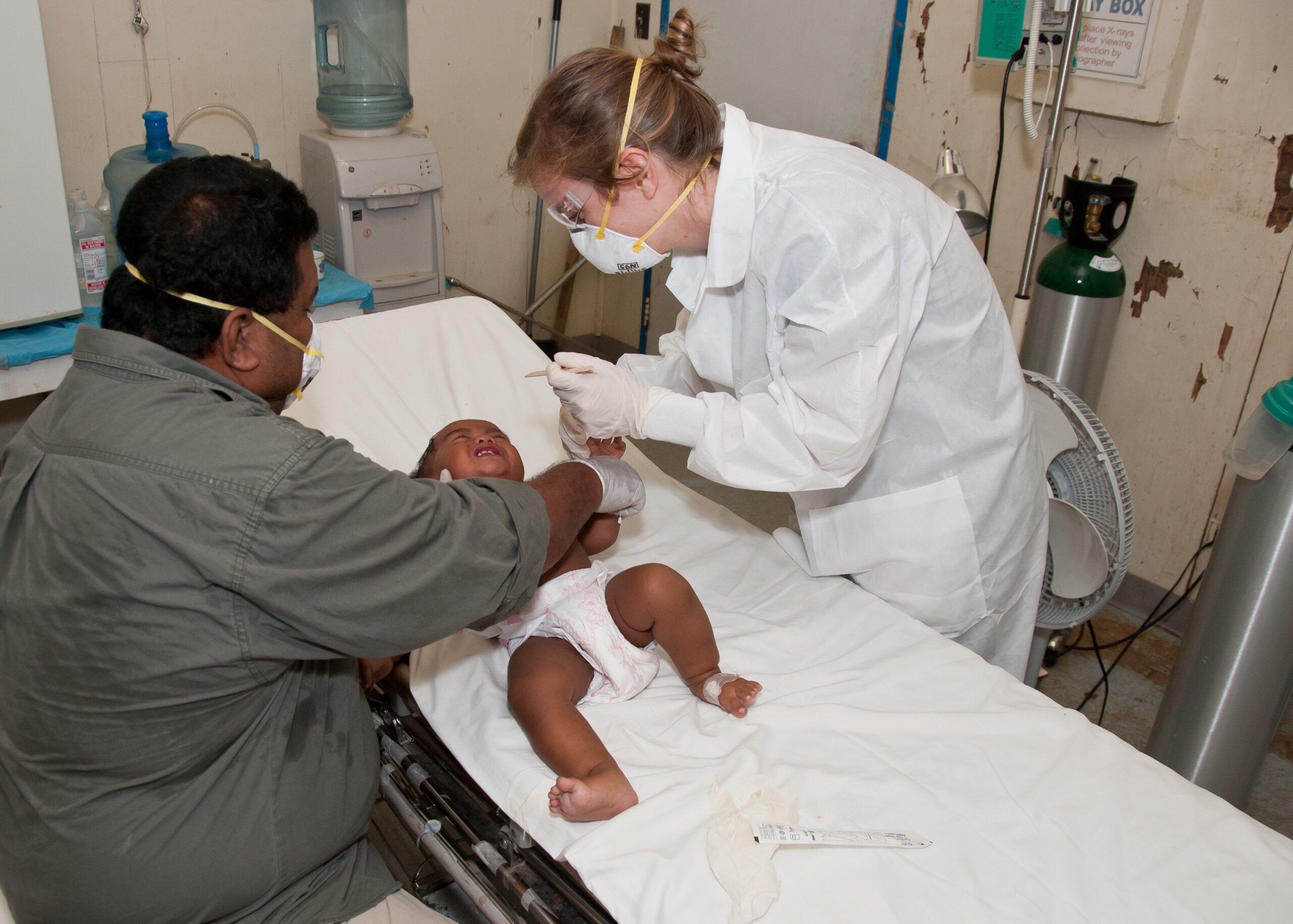Biomedical engineering is a discipline that combines biology, medicine, and engineering to develop and improve medical products and systems. Professionals use it to design medical devices such as prosthetics, implants, and surgical instruments. It also serves to develop treatments for diseases and disorders.
In India, biomedical engineering helps create innovative solutions for healthcare challenges, such as increasing access to quality care and improving patient outcomes. Biomedical engineers are at the forefront of healthcare innovation in India. They design and develop medical equipment, systems, and software. These help in hospitals, clinics, laboratories, research facilities, and other healthcare settings. They also work closely with physicians to create new treatments for diseases and disorders.
Biomedical engineers also use their biology and engineering principles knowledge to develop diagnostic tools. These tools identify health problems early on. Biomedical engineering has become an essential part of healthcare due to its ability to revolutionize how we deliver care. Biomedical engineers can design more efficient systems using artificial intelligence (AI), machine learning (ML), and other innovative technologies. This results in becoming capable of delivering better patient outcomes.
Career Options in Biomedical Engineering and How to Pursue Them
From medical device design to hospital management, the scope of biomedical engineering is vast. It offers a promising future for those passionate about healthcare. Many universities offer undergraduate and postgraduate courses in biomedical engineering. Understanding the different career options available and how to seek them is crucial.
Medical device design is a popular career path for biomedical engineers. It involves designing and developing medical devices such as prosthetics, implants, orthotics, and dialysis machines. This job requires excellent technical skills and an understanding of anatomy and physiology. Pursuing a degree in biomedical engineering or a related field, such as mechanical or electrical engineering, is a requisite. It is also helpful to have experience with CAD (Computer-Aided Design) software and other relevant technologies.
Another popular option for biomedical engineers is hospital management. It involves overseeing the day-to-day operations of hospitals, including patient care, staffing levels, budgeting, and more. To pursue it, one must have a degree in biomedical engineering, health care administration, or public health administration. Having experience working with hospital systems such as electronic health records (EHRs) is also beneficial.
Biomedical engineers can also find employment in research laboratories where they work on developing new treatments or devices for medical conditions. It is also helpful to have experience with laboratory equipment and techniques.
Finally, biomedical engineers can find employment in the pharmaceutical industry, where they work on developing new drugs or therapies for medical conditions. It requires excellent communication skills and an understanding of pharmacology principles and protocols. Having experience working with drug development processes and protocols is also beneficial.
What is the scope of Biomedical Engineering?
Biomedical engineering has potential applications in various industries, such as
- medical device manufacturing,
- biotechnology,
- pharmaceuticals,
- clinical research,
- health informatics,
- software development for healthcare systems, and
- robotics for surgeries,
- artificial organs,
- prosthetics, and
- implants.
Biomedical Engineering Syllabus
The Biomedical Engineering Courses in India encompass a comprehensive range of subjects such as physics, chemistry, biology, mathematics, and engineering.
Physics courses focus on topics such as thermodynamics, mechanics, and electricity.
Chemistry courses cover topics such as thermodynamics, physical chemistry, and biochemistry.
Biology courses include human anatomy and physiology, genetics, and cell biology.
Mathematics courses give students a strong foundation in algebra, calculus, and statistics.
Engineering courses cover computer-aided design (CAD), robotics, and instrumentation.
In addition to these core subjects, the biomedical engineering syllabus includes specialized courses in the field, such as
- medical imaging,
- biomechanics,
- biophotonics,
- biomaterials science and technology,
- nanomedicine,
- bioinformatics, and
- tissue engineering.
These technical courses allow students to learn about specific biomedical engineering aspects relevant to their chosen area of specialization.
Course Programs Available for Pursuing Biomedical Engineering in India
In India, there are many universities offering courses in biomedical engineering at both undergraduate and postgraduate levels. These courses offer students insight into the latest technologies used in healthcare and provide them with the skills required to develop new products that can improve patient care. The most popular degrees offered by universities in India are Bachelor of Technology (BTech) and Masters of Technology (MTech).
BTech is a four-year program that covers biomedical engineering fundamentals, such as anatomy, physiology, pathology, medical imaging, and biomechanics. Students also learn about medical device design, microprocessors, and other related topics.
MTech is a two-year postgraduate program focusing on advanced topics such as bio instrumentation, biocomputing, and biomaterials.
In addition to these degrees, some universities also offer specialized courses in biomedical engineering. Some universities also offer certificate programs to specialize in specific areas of biomedical engineering. Importantly, no standard qualifications exist for pursuing a degree or certificate in biomedical engineering in India. Generally speaking, students should have an undergraduate degree in physics or mathematics before enrolling in any course related to biomedical engineering.
Institutions Offering Biomedical Engineering Programs in India
In India, numerous institutions offer undergraduate and postgraduate courses in Biomedical Engineering, providing ample opportunities for aspiring students in the field. Some of the top institutions offering biomedical engineering programs in India include-
IIT Delhi is one of the leading institutions offering a four-year Bachelor’s program in Biomedical Engineering. The course covers anatomy and physiology, bio instrumentation, bioimaging, biomaterials and tissue engineering, molecular biotechnology, and bioinformatics.
The University of Mumbai offers a three-year Bachelor’s program in Biomedical Engineering. The course covers
- bioelectricity,
- biomechanics,
- cellular and molecular biology,
- digital signal processing, and
- medical imaging technology.
MIT Manipal offers both undergraduate and postgraduate courses in biomedical engineering. The four-year Bachelor’s program covers
- biomaterials science & technology,
- genetic engineering & molecular biology,
- tissue engineering & regenerative medicine, and
- clinical engineering & healthcare informatics.
The two-year Master’s program includes topics such as
- medical device design & development,
- systems physiology & modeling techniques, and
- medical image processing & analysis.
Birla Institute of Technology & Science (BITS), Pilani, also offers a four-year Bachelor’s program in Biomedical Engineering which covers topics such as
- anatomy & physiology for engineers,
- biophysics & biomechanics,
- neurophysiology & neural networks, and
- tissue engineering & regenerative medicine.
Vellore Institute of Technology (VIT)
Amrita Vishwa Vidyapeetham Coimbatore
Introducing new technologies can help improve patient care, reduce medical costs, and provide better access to healthcare services. India can become a leader in healthcare technology and innovation using biomedical engineering. It would benefit the entire population of India, as well as other countries around the world.



